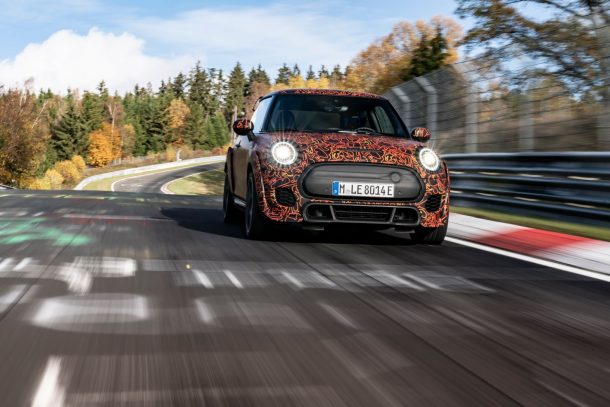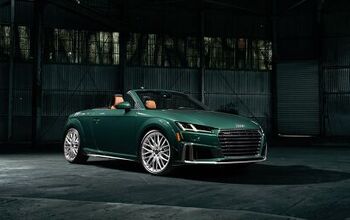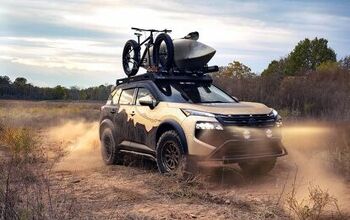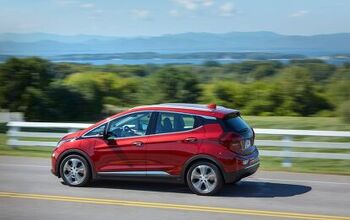John Cooper Works Mini EV or the Evolution of Small Appliances?
John Cooper Works Mini and electrification, do they go together? Do buyers who pay a premium for the JCW brand want or need an electric version?
Does the evolution of the Mini model range and parent corporation BMW’s ongoing expansion of electric mobility offer anything new for enthusiasts and loyal owners of the John Cooper Works brand? Driving enjoyment being the raison d’être for JCW, does this mean that extreme performance and genuine driving enjoyment will be available with electric drive as well as combustion engines? Will this open up new possibilities for future Mini vehicle architecture?
If you ask Mini, they’ll tell you all about what they’ve accomplished in electric mobility. They referenced the Mini Cooper SE Countryman ALL4 plug-in hybrid’s miserly combined fuel and power consumption, as the rationale that led to electrification of 5 percent of the brand. With the launch of the all-electric Mini Cooper SE, 10 percent of all Minis were now plug-ins. Based on just 10 percent and not considering the 90 percent still gas-powered, Mini said in a press release that they are preparing to press on in the development of John Cooper Works EV models.
“With the Mini Electric, we’ve shown how well brand-typical driving enjoyment and electric mobility can be combined,” said Bernd Körber, head of the Mini brand. “Now it’s time to translate the passion for performance of the John Cooper Works brand to electromobility. That’s why we’re working to develop concepts for electric John Cooper Works models.”
The current focus on the development of a Mini John Cooper Works EV demonstrates just how important electric mobility is in terms of BMW’s future direction, a goal of sustainability, if not performance and passion.
“John Cooper Works models with conventional combustion engines will still continue to have an important role to play, to make sure we’re addressing the wishes and needs of performance enthusiasts all around the world,” said Bernd Körber. “With this new focus on electric performance, we’re also creating the opportunity to sharpen the distinctive profile of the John Cooper Works brand more than ever before.”
Battery-powered tools and appliances being what they are, I’ll keep my corded DeWalt drill and rotary saw. It’s frustrating having to wait for cordless tools to power up again. I wonder if John Cooper Works EV owners will feel the same?
[ Images: Mini]
With a father who owned a dealership, I literally grew up in the business. After college, I worked for GM, Nissan and Mazda, writing articles for automotive enthusiast magazines as a side gig. I discovered you could make a living selling ad space at Four Wheeler magazine, before I moved on to selling TV for the National Hot Rod Association. After that, I started Roadhouse, a marketing, advertising and PR firm dedicated to the automotive, outdoor/apparel, and entertainment industries. Through the years, I continued writing, shooting, and editing. It keep things interesting.
More by Jason R. Sakurai
Latest Car Reviews
Read moreLatest Product Reviews
Read moreRecent Comments
- Kjhkjlhkjhkljh kljhjkhjklhkjh *Why would anyone buy this* when the 2025 RamCharger is right around the corner, *faster* with vastly *better mpg* and stupid amounts of torque using a proven engine layout and motivation drive in use since 1920.
- Kjhkjlhkjhkljh kljhjkhjklhkjh I hate this soooooooo much. but the 2025 RAMCHARGER is the CORRECT bridge for people to go electric. I hate dodge (thanks for making me buy 2 replacement 46RH's) .. but the ramcharger's electric drive layout is *vastly* superior to a full electric car in dense populous areas where charging is difficult and where moron luddite science hating trumpers sabotage charges or block them.If Toyota had a tundra in the same config i'd plop 75k cash down today and burn my pos chevy in the dealer parking lot
- Kjhkjlhkjhkljh kljhjkhjklhkjh I own my house 100% paid for at age 52. the answer is still NO.-28k (realistically) would take 8 years to offset my gas truck even with its constant repair bills (thanks chevy)-Still takes too long to charge UNTIL solidsate batteries are a thing and 80% in 15 minutes becomes a reality (for ME anyways, i get others are willing to wait)For the rest of the market, especially people in dense cityscape, apartments dens rentals it just isnt feasible yet IMO.
- ToolGuy I do like the fuel economy of a 6-cylinder engine. 😉
- Carson D I'd go with the RAV4. It will last forever, and someone will pay you for it if you ever lose your survival instincts.







































Comments
Join the conversation
In the US market, Mini's sales have been shrinking for 5 years straight, and its market share is less that half its already 'mini' size of 2012. The brand is dying, and all the marketing buzzwords in the world won't save it. Problem #1: The brand name - change it. Problem #2: In keeping with the brand name, making a large Mini that people might actually want is an oxymoron. Problem #3: Because Minis are small by definition, they are quite limited in terms of EV capacity. An electric Mini might be quick, but it will suffer from class-lagging short range and will be much heavier and more costly. Critics will hate it. **** "Battery-powered tools and appliances being what they are, I’ll keep my corded DeWalt drill and rotary saw. It’s frustrating having to wait for cordless tools to power up again." That's a cheap comment from the 2010-era, as is the headline to this story. EVs and cordless tools don't have much in common, and the obvious solution to battery filling on cordless tools is to have a second battery. That works very well on my battery-powered drills, leaf blower, impact wrench, power ratchet, tire filler, and snow blower, but in typical use they don't even need a change.